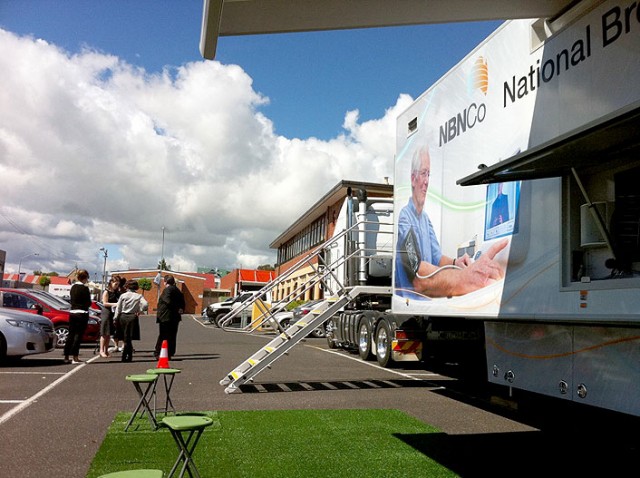Further to yesterday’s post about NBNCo’s inability to tell a story, I received a polite message from the long suffering staff at the Minister’s office that pointed me to some of the resources that NBNCo and the Department of Broadband, Communications and Digital economy have posted.
Here’s the list of case studies and videos;
http://www.nbn.gov.au/nbn-
http://www.nbnco.com.au/nbn-
http://www.nbn.gov.au/case-
http://www.nbn.gov.au/case-
All of these case studies are nice, but they illustrate the problem – they’re nice, standard government issue media releases. The original CNet story that triggered yesterday’s story tells real stories that are more than just sanitised government PR.
It also begs the question of where the hell are all these people successfully using the NBN when I ask around about them?
What’s even more frustrating is the Sydney Morning Herald seems to get spoon fed these type of stories.
The really irritating thing with stories like yesterday’s SMH piece is that it’s intended to promote the Digital Rural Futures Conference on the future of farming being held by the University of New England.
Now this is something I’d would have gone to had I known about it and I’d have paid my own fares and accommodation. Yet the first I know about this conference is an article on a Saturday four days out from the event. That’s not what you’d call good PR.
The poor public relations strategies of the Digital Rural Futures Conference is a symptom of the National Broadband’s Network’s proponents’ inability to get their message out the wider public.
When we look back at the debacle that was the debate about Australia’s role in the 21st Century, it’s hard not to think the failure to articulate the importance of modernising the nation’s communications systems will be one of the key studies in how we blew it.
Despite the best efforts of a few switched on people in Senator Conroy’s office, a lot more effort is needed to make the case for a national broadband and national investment in today’s technologies which are going to define the future.

Leave a Reply